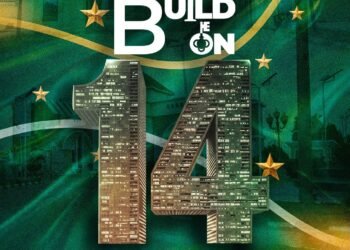Naira has continued to gain against the US dollar at the black market, see the new exchange rate below.
Glamtush reports that the American official currency, dollar crashed at the parallel market also known as the black market on Friday, October 29, trading at ₦565 per a dollar after it closed at ₦572 per a dollar on Thursday, October 28, 2021.
IMPORTANT NOTE: Please note that the exchange rate changes hourly.… it depends on the volume of dollars available and the Demands. What it means is that...you can buy or sell 1 dollar at ₦565 and the price can change (high or low ) within hours.
Also, Glamtush reports that the Naira gained on Friday, October 29, 2021, hitting ₦₦414.49 per dollar, after it closed at ₦415.10 per $1 on Thursday, 29 October 2021 at the Nigerian autonomous foreign exchange (NAFEX) rate — the default FX reference for official and legitimate transactions.
Meanwhile, Glamtush reports that the development is coming a week and few days after Nigeria’s Vice President, Prof. Yemi Osinbajo, called on the Central Bank of Nigeria (CBN) led by Godwin Emefiele to allow the naira reflect the realities of the market.
The Vice President had said the exchange rate is artificially low and deterring investors from bringing foreign exchange into the country.

“Prof. Osinbajo is not calling for the devaluation of the Naira. He has at all times argued against a willy-nilly devaluation of the Naira,” Laolu Akande, spokesperson to Vice-President had explained in a statement.
“For context, the Vice-President’s point was that currently the Naira exchange rate benefits only those who are able to obtain the dollar at N410, some of who simply turn round and sell to the parallel market at N570.
“It is stopping this huge arbitrage of over N160 per dollar that the Vice-President was talking about. Such a massive difference discourages doing proper business, when selling the dollar can bring in 40% profit!
“This was why the Vice-President called for measures that would increase the supply of foreign exchange in the market rather than simply managing demand, which opens up irresistible opportunities for arbitrage and corruption.
“It is a well-known fact that foreign investors and exporters have been complaining that they could not bring foreign exchange in at N410 and then have to purchase foreign exchange in the parallel market at N570 to meet their various needs on account of unavailability of foreign exchange.”






















